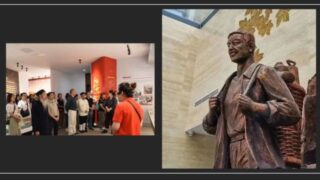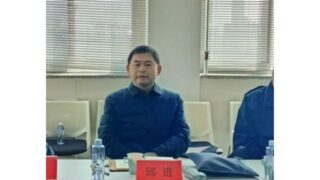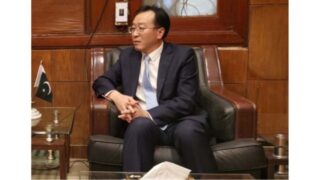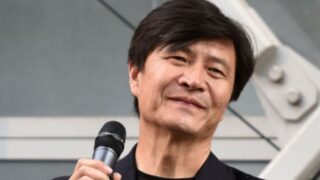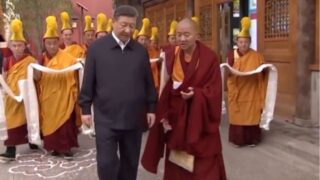Its aim is “to fend off the Western countries’ values and cut off their influence”—with a little help from Putin.
by Hu Zimo


Meet the Research Centre of Xi Jinping Thought on Culture, yet another new institution in Beijing, and one the CCP believes will play a key role in the future.
Earlier this month, the CCP held a National Conference on Propaganda, Ideology and Culture, under the presidency of Xi Jinping himself. This was not a routine event. Only two of these conferences have been organized in the last ten years and they dictate long-term strategies for both domestic and international propaganda.
The aim of the conference was to promote the new “Xi Jinping Thought on Culture,” presenting it as a new gift by Xi not only to China but to the world. The conference was strategically scheduled on the eve of the Third Belt and Road Forum in Beijing, featuring Vladimir Putin as the main speaker together with Xi Jinping. The Research Centre of Xi Jinping Thought on Culture was announced as a permanent institution including academics but clearly part of the CCP’s propaganda system.
But what is exactly “Xi Jinping’s Thought on Culture”? As influential CCP ideologue Deng Yuwen told the media, it can be reduced to two programs. The first is to “tie Marxism to Chinese cultural roots so that the Party’s ideology can gain better acceptance among the Chinese people.” As “Bitter Winter” has reported in a separate article, this is the “second combination” between Marxism and Confucianism, after the first one promoted by Marxist intellectuals between the two World Wars. It is based on an interpretation of Confucianism that separates it from its spiritual and religious content. Its manifesto is the movie “When Marx Met Confucius,” presented at the Beijing conference with much fanfare.
Xi Jinping really believes that his “second combination” has a universal value. He maintains both that Marxism is still the ultimate truth on the human condition and history, and is indeed “winning the global ideological war,” and that traditional Chinese culture is the oldest in the world, as he tries to prove through his propaganda archeology. However, it is unlikely that products such as the film “When Marx Met Confucius” would be taken seriously abroad. This first part of “Xi Jinping Thought on Culture” is mostly for domestic consumption.


There is, however, the second part. Deng Yuwen describes it as “fending off the Western countries’ values and cutting off their influence.” This is the essence of Xi’s recently unveiled Global Community Plan and the ideological core of the Belt and Road Initiative. By “Western countries’ values” Xi Jinping means democracy based on free and fair elections, separation of powers, independence of the judiciary, free media, freedom of speech, freedom of religion or belief.
This part of “Xi Jinping Thought on Culture” is something all dictators and enemies of democracy in the world can agree with, starting with Vladimir Putin. Expect Russian cooperation with the new Research Centre of Xi Jinping Thought on Culture—one that will confirm Russia’s role as the junior partner in this business as it is Xi’s thought that is promoted rather than Putin’s. True, there are also some democratic countries that have signed up for the Belt and Road Initiative. But then Marxism always counted on what it called useful idiots.


